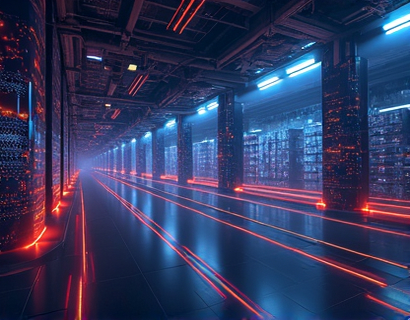AI-Driven Personalized Education Platform: Revolutionizing Learning for Students and Adults
The educational landscape is undergoing a significant transformation with the advent of AI-driven personalized learning platforms. These innovative tools are redefining how students and lifelong learners access education, offering a tailored approach that adapts to individual learning styles and needs. The core idea behind these platforms is to provide adaptive lessons that not only cater to diverse learning preferences but also offer instant feedback to maximize potential and help achieve personal and professional goals.
Understanding Personalized Learning
Personalized learning is an educational approach that recognizes the uniqueness of each learner. It involves customizing the learning experience to meet the specific needs, interests, and abilities of individual students. Traditional education systems often follow a one-size-fits-all model, which can leave many students struggling to keep up or feeling under-challenged. AI-driven platforms address this by using advanced algorithms and machine learning techniques to analyze student data and create customized learning paths.
How AI Enhances Personalized Education
AI technologies play a crucial role in making personalized education effective and efficient. These platforms utilize a combination of natural language processing, predictive analytics, and adaptive learning technologies to create a dynamic and responsive learning environment. Here’s how AI enhances the personalized learning experience:
- Adaptive Learning Paths: AI algorithms continuously assess student performance and adjust the difficulty and content of lessons in real-time. This ensures that learners are always challenged appropriately, neither bored nor overwhelmed.
- Personalized Content Recommendations: By analyzing a student’s strengths, weaknesses, and learning preferences, AI can recommend specific resources, articles, and videos that align with their needs and interests.
- Instant Feedback and Assessment: AI provides immediate feedback on assignments and quizzes, helping students understand their mistakes and learn from them promptly. This instantaneous response is crucial for reinforcing correct concepts and correcting misunderstandings quickly.
- Predictive Analytics: AI can predict areas where a student might struggle in the future based on past performance and learning patterns. This allows for proactive interventions and targeted support.
Benefits for Students
The benefits of AI-driven personalized education are manifold, particularly for students who may have been underserved by traditional educational systems. Some key advantages include:
-Enhanced Engagement: Personalized learning keeps students more engaged by providing content that resonates with their interests and learning styles, leading to a more enjoyable and effective learning experience.
-Improved Retention: Tailored lessons help students better understand and retain information, as the material is presented in a way that aligns with their cognitive processes.
-Increased Confidence: Regular positive feedback and the ability to progress at their own pace boost students’ confidence and motivation to continue learning.
-Holistic Development: AI platforms can support not just academic learning but also soft skills development, such as critical thinking, problem-solving, and time management.
Benefits for Lifelong Learners
Lifelong learning has become increasingly important in today’s rapidly changing job market. AI-driven personalized education platforms offer significant advantages for adults seeking to upskill or reskill:
-Flexible Learning: Adults can learn at their own pace and on their own schedule, fitting education into busy lifestyles.
-Relevant Skill Development: AI can identify in-demand skills in various industries and tailor learning paths to help adults acquire these skills, enhancing their career prospects.
-Continuous Improvement: Lifelong learners can continuously refine their knowledge and skills, staying competitive and adaptable in their professional lives.
-Personal Fulfillment: Pursuing personal interests and passions through personalized learning can lead to greater life satisfaction and fulfillment.
Implementing AI in Education: Challenges and Considerations
While the potential of AI-driven personalized education is vast, there are several challenges and considerations that need to be addressed:
-Data Privacy and Security: Protecting student data is paramount. Educational platforms must implement robust security measures to ensure that personal information is safeguarded.
-Equity and Accessibility: Ensuring that all students, regardless of socioeconomic background, have access to these advanced technologies is crucial. Efforts must be made to bridge the digital divide.
-Teacher Integration: Teachers play a vital role in the learning process. AI should be seen as a tool to augment their capabilities, not replace them. Professional development programs can help educators effectively integrate AI into their teaching practices.
-Algorithmic Bias: AI systems can inadvertently perpetuate biases if not carefully designed and monitored. Continuous evaluation and refinement of algorithms are necessary to ensure fairness and accuracy.
Case Studies and Success Stories
Several educational institutions and platforms have successfully implemented AI-driven personalized learning solutions, yielding impressive results:
-Adaptive Learning Systems in K-12: Schools that have adopted adaptive learning systems have seen significant improvements in student performance and engagement. For example, a school district in the United States reported a 20% increase in math proficiency scores after implementing an adaptive learning platform.
-Higher Education Initiatives: Universities are using AI to personalize course recommendations and learning resources. One university found that students using AI-driven tools showed a 15% higher retention rate and a 10% improvement in GPA.
-Corporate Training Programs: Companies are leveraging AI to provide personalized professional development for their employees. A leading tech firm reported a 25% increase in employee satisfaction and a 30% improvement in skill acquisition through their AI-powered training platform.
Future Trends in AI-Driven Education
The future of AI in education is promising, with several trends shaping the landscape:
-Increased Personalization: As AI technologies advance, the level of personalization will deepen, with more nuanced understanding of individual learning styles and needs.
-Integration with VR and AR: Virtual and augmented reality, when combined with AI, can create immersive learning experiences that further enhance engagement and retention.
-Global Accessibility: AI-driven platforms can help democratize education by making high-quality learning resources available to a global audience, breaking down geographical barriers.
-Continuous Learning Ecosystems: The concept of lifelong learning will be supported by ecosystems that seamlessly integrate various learning platforms and resources, providing a continuous and cohesive learning journey.
Conclusion
The integration of AI in education is transforming the way we learn, making education more accessible, engaging, and effective. By leveraging the power of AI, personalized learning platforms are empowering students and lifelong learners to reach their full potential. As these technologies continue to evolve, the future of education looks brighter and more inclusive than ever before.










































